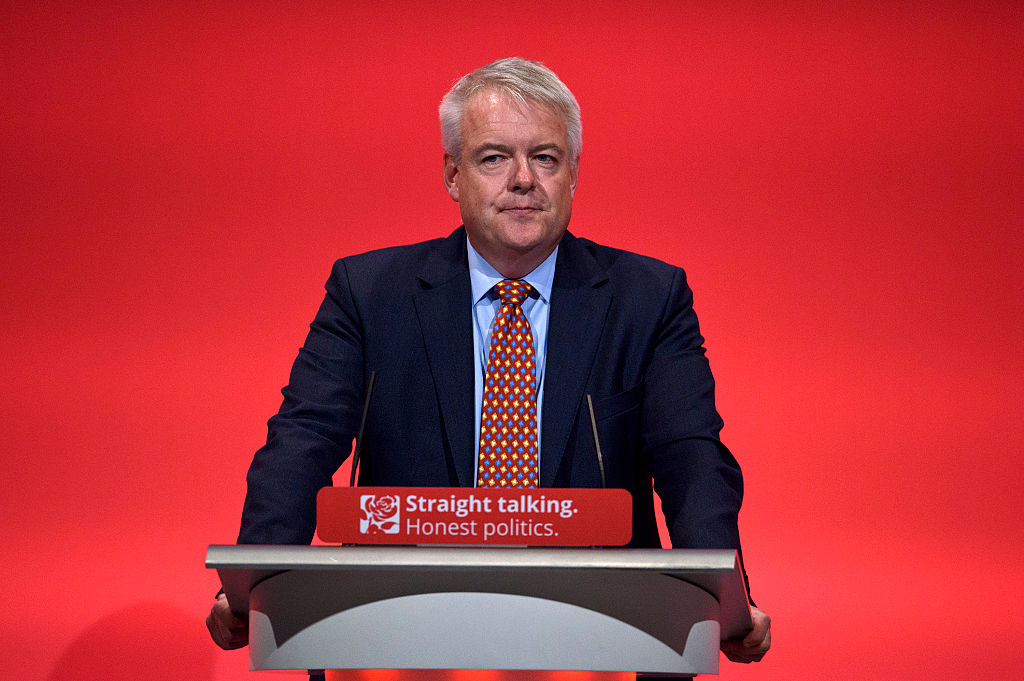Never underestimate the resilience of the Welsh Labour party. Up until now, this year’s general election had looked like it was going to be an historic one in Wales, where the Conservatives have not won since the 1850s, and Labour have come first in both votes and seats every time since 1922. Both Welsh polls conducted since the election was called had given the Tories a clear lead, and put them on all-time high levels of support.
But the latest Welsh poll, published today, puts a very different light on things. Labour are now, it appears, back in a clear lead: up nine percentage points in the last two weeks, to 44 per cent, and ten points ahead of the Conservatives whose rating has slumped by seven per cent over the past fortnight. So far, all seat projections in Wales for the election have been focusing on the scale of potential Labour losses. Now, the standard uniform national swing method actually projects Labour to make a net gain in Wales in 2017 – albeit of only one seat, Gower, which they lost by a mere 27 votes two years ago.
Where has this sudden turnaround in the main parties’ fortunes in Wales come from? Some of it is clearly in line with the Britain-wide trends over the past few days. Labour support has firmed up, while the bounce that the Conservatives had after Theresa May first called the election seems to have subsided. But the changes in Wales are of a bigger scale, and they would appear to point to a very different electoral landscape from the one we thought we were dealing with. Instead of a genuinely historic electoral breakthrough for the Welsh Tories, the latest poll suggests an outcome very much in line with the last century of Welsh electoral politics.
One possible explanation for the figures is ‘Twyman’s Law’ – that ‘If a statistic looks interesting or unusual it is probably wrong’. There are inevitably some ‘outliers’ in polling, and this could just be one of them. Former Labour pollster James Morris has suggested that much of the party’s apparent recent gains across Britain may reflect nothing more substantial than a rise in the propensity of Labour supporters to respond to polls. But what if this poll is not a rogue? Why might Labour’s fortunes in Wales have apparently recovered so rapidly and to such a high degree?
Two words may be crucial here: Rhodri Morgan. By pure coincidence, sampling for the latest Welsh poll began just a few hours after Wales’ former First Minister died – and therefore during a period when most Welsh media coverage of politics was given over to eulogies for the universally popular Mr Morgan. A ‘sympathy vote’ is hardly unknown in politics, and it would not be a very surprising thing if at least some of the warm sentiments being evoked had generalised to Rhodri Morgan’s party. It is notable that Labour support has risen across the board in this new Welsh poll: in voting intentions for the Welsh Assembly, in policy ratings, and even in terms of Jeremy Corbyn’s personal rating. But any such sympathy factor is likely to be short-lived: memories are short, and by polling day voters are likely to be focused much more on the important electoral choice they face.
But take note also of how Labour in Wales have been campaigning. Today saw the launch of Welsh Labour’s general election manifesto. Two years ago, this was a mildly-Welshified version of the UK document. In 2017, Welsh Labour have published a wholly separate manifesto, launched at an event led by First Minister Carwyn Jones (even though the Welsh First Minister is not a candidate at the election), who did not utter the name Jeremy Corbyn even once. This is typical of how the Labour campaign is being run. In last week’s ITV-Wales debate, Labour were again represented by Carwyn Jones: once more in stark contrast to 2015, when such duties were performed by then Shadow Welsh Secretary, and later unsuccessful Labour leadership candidate, Owen Smith. Labour in Wales are doing everything possible to dissociate themselves from the dysfunctional party and leadership at Westminster. Instead, they are campaigning wholly under the ‘Welsh Labour’ brand that carried them to victory both in last year’s Welsh Assembly election and this year’s Welsh local council elections.
The worries are not over for Labour in Wales. This poll, the more general trends seen in Britain-wide polling in recent days, and the Conservatives’ recent problems over their social care policies, will surely produce a fierce Tory response. Expect an even more intense focus from the Conservative campaign in these last two weeks on the choice between Theresa May and Jeremy Corbyn. Even in Wales, such a contrast plays much better for the blues than the reds. Expect also a renewed focus on Brexit – something that will likely have traction in Euro-sceptic Wales. But Labour haven’t dominated elections in Wales for nearly a century just by accident. And they are not about to meekly curl up and die.
Roger Scully is Professor of Political Science at the Wales Governance Centre, Cardiff University. He is the principal investigator for the Welsh Election Study.






Comments